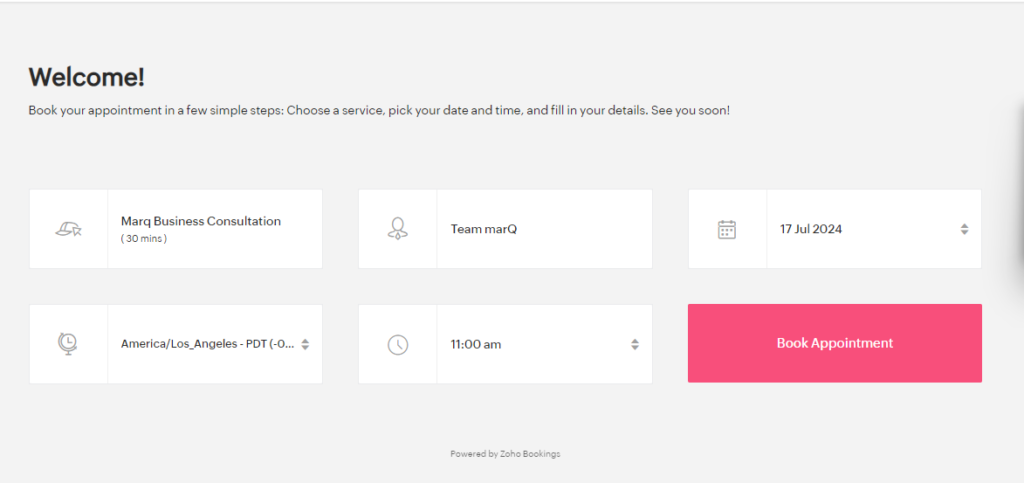What Are the Different Types of Website Solutions?
Introduction
In the vast world of digital presence, choosing the right website solution is crucial for establishing a strong online identity. Whether you’re a small business owner, a blogger, or an e-commerce entrepreneur, understanding the various types of website solutions can help you make an informed decision that aligns with your goals.

What Are Website Solutions?
Website solutions encompass the different approaches and tools available for creating and managing a website. These solutions vary widely, catering to different needs such as custom functionality, ease of use, and specific business requirements. From tailored web development to ready-made builders, each type offers unique benefits.
Custom Web Development
Custom web development is a highly flexible approach where websites are built from scratch to meet specific needs and preferences.
Benefits of Custom Web Development
- Tailored Functionality: Custom development allows for unique features and functionalities that are specifically designed for your business requirements.
- Scalability: As your business grows, custom websites can be expanded with new features and integrations.
- Enhanced Performance: Custom solutions can be optimized for speed and performance, tailored to your unique needs.
When to Choose Custom Development
Opt for custom web development if you require a unique design, advanced functionality, or complex integrations that can’t be achieved with standard solutions. This approach is ideal for businesses with specific needs that off-the-shelf solutions cannot fulfill.

Content Management Systems (CMS)
Content Management Systems (CMS) are platforms that allow users to create, manage, and modify content on a website without needing advanced technical skills.
Popular CMS Options
- WordPress: The most widely used CMS, offering extensive themes, plugins, and customization options.
- Joomla: Known for its flexibility and ease of use, suitable for more complex websites.
- Drupal: Ideal for complex, high-traffic sites requiring robust functionality and security.
Advantages of Using a CMS
- User-Friendly Interface: CMS platforms typically offer intuitive interfaces for managing content, making them accessible to users without technical expertise.
- Flexible and Scalable: Easily add new features and content as your website grows.
- SEO-Friendly: Many CMS platforms come with built-in SEO features and plugins to enhance your site’s visibility.

CLAIM YOUR MARKETING STRATEGY SESSION TODAY!
WE REVIEW YOUR MARKETING EFFORTS & SHOW YOU AREAS TO IMPROVE.
E-Commerce Platforms
E-commerce platforms are specialized solutions for building online stores, managing products, and handling transactions.
Key Features of E-Commerce Platforms
- Product Management: Tools for adding, categorizing, and managing products.
- Payment Gateways: Integration with various payment options for seamless transactions.
- Order Processing: Automated systems for handling orders, shipping, and customer notifications.
Choosing the Right E-Commerce Solution
Consider factors such as ease of use, scalability, and integration capabilities when selecting an e-commerce platform. Popular choices include Shopify for its user-friendly interface, Magento for its flexibility, and WooCommerce for its integration with WordPress.
Website Builders
Website builders are user-friendly tools that allow you to create a website using drag-and-drop functionality without needing coding skills.
Popular Website Builders
- Wix: Offers a wide range of templates and customization options with an easy-to-use drag-and-drop interface.
- Squarespace: Known for its stylish designs and comprehensive tools for content creation.
- Weebly: Provides a simple platform with built-in e-commerce features and a straightforward interface.
Pros and Cons of Website Builders
- Pros: Quick setup, no coding required, and typically lower costs compared to custom development.
- Cons: Limited flexibility and customization compared to custom solutions, and you may face constraints with scalability.
Responsive Web Design
Responsive web design ensures that a website functions well on various devices and screen sizes, from desktops to mobile phones.
Importance of Responsive Design
- User Experience: Enhances the browsing experience by providing a seamless experience across devices.
- SEO Benefits: Google favors mobile-friendly websites in search rankings, making responsive design crucial for visibility.
- Reduced Bounce Rate: Visitors are less likely to leave your site if it’s easy to navigate on their device.
Implementing Responsive Design
Incorporate flexible grids, fluid images, and media queries to ensure your website adapts to different screen sizes and orientations. Testing across various devices and browsers is essential to ensure consistent performance.
Comparing Different Website Solutions
When choosing a website solution, consider the following factors to determine the best fit for your needs:
Cost Considerations
- Custom Development: Higher initial investment but offers tailored solutions and scalability.
- CMS: Generally affordable with options for free and paid plugins and themes.
- Website Builders: Often the most cost-effective option with lower upfront costs.
Ease of Use and Flexibility
- CMS: Provides a balance of ease of use and flexibility, suitable for a wide range of websites.
- E-Commerce Platforms: Offers specialized tools for online stores but may have a steeper learning curve.
- Website Builders: Extremely user-friendly but may lack advanced customization features.
Future Trends in Website Solutions
Stay ahead by exploring emerging trends in website solutions:
AI and Automation
AI-powered tools are becoming more prevalent in website design, offering automated content creation, chatbots, and personalized user experiences.
Voice Search Optimization
As voice search grows, optimizing your website for voice queries can enhance user experience and improve search rankings.
Advanced Security Features
With increasing cyber threats, incorporating advanced security measures such as SSL certificates and regular updates is crucial for protecting your website.
Conclusion
Choosing the right website solution depends on your business needs, budget, and long-term goals. Whether you opt for custom web development, a content management system, an e-commerce platform, a website builder, or responsive design, each option offers distinct advantages. By understanding your requirements and the features of each solution, you can make an informed decision that supports your online presence and business success.
For more information on finding the best website solutions for your needs, visit Marq Networks.

CLAIM YOUR MARKETING STRATEGY SESSION TODAY!
WE REVIEW YOUR MARKETING EFFORTS & SHOW YOU AREAS TO IMPROVE.
FAQs
The best website solution depends on your specific needs. For a small business, a content management system like WordPress or a website builder like Wix can offer a good balance of affordability and functionality.
Custom web development costs vary widely based on complexity, features, and developer rates. Expect to invest more upfront compared to other solutions, but it provides a highly tailored and scalable result.
Yes, it’s possible to switch from a website builder to a custom solution. However, it involves migrating content and possibly redesigning elements, so plan accordingly to minimize disruptions.
Regular updates are essential to keep your website fresh and functional. Consider redesigning every 2-3 years or when significant changes in technology or user preferences occur.
Key factors include flexible layouts, fluid images, media queries, and ensuring compatibility with various devices and browsers to provide a consistent user experience.
ABOUT THE AUTHOR:

Syeda Hufsa
Syeda Hufsa is the Content Creation Specialist at marQ Networks. Syeda Hufsa loves writing both personally and professionally. She graduated from reupdated university field of Computer science.



